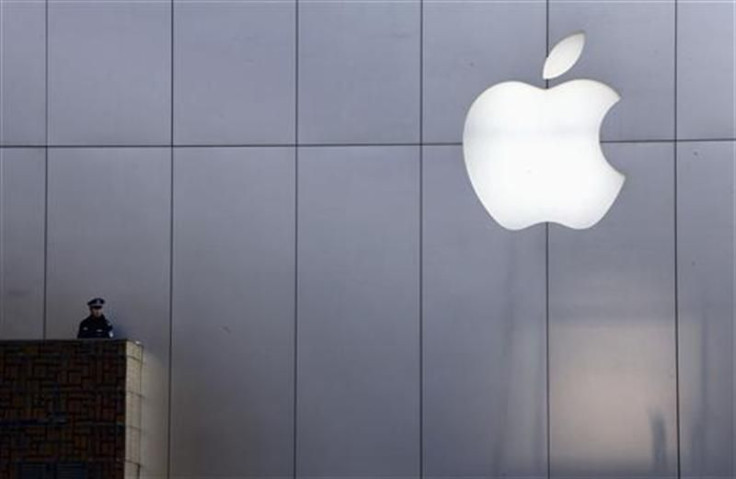Apple's Legal Woes in China Offer Hope to Rivals

(Reuters) - Apple Inc's legal row over its iPad trademark in China creates a window of opportunity for rivals such as Lenovo Group Ltd and Samsung Electronics Co Ltd as they try to chip away at the U.S. firm's dominance of the potentially vast Chinese tablet market.
Apple, the world's most valuable technology company, is fighting lawsuits brought by debt-laden Chinese electronics maker Proview Technology (Shenzhen), causing retailers and resellers in more than 10 Chinese cities to take iPads off their shelves, according to media reports.
Apple's iPad enjoys a huge lead over rival tablet PCs in China with a 76 percent share. Lenovo and Samsung trail a distant second and third with about 7 percent and 3 percent respectively, data from research firm IDC showed.
Apple's loss could be Lenovo and Samsung's gains, said Jonathan Ng, an analyst with CIMB in Singapore.
Samsung likely has most to gain, because its Galaxy tablet competes in the same price segment as the iPad.
Samsung will probably benefit more from Apple's ongoing lawsuit because both of them are after the same higher-end consumers given their price points, said Dickie Chang, an analyst from IDC in Hong Kong.
The impact on Lenovo may be less because Lepads are lower priced and are aimed more at entry-level users.
A basic iPad 2 typically costs 3,688 yuan ($585), roughly the same price as 7-inch Samsung Galaxy Tab, while some models of Lenovo's Lepad were selling at roughly half that price on online retail sites.
IDC said in the third quarter Apple sold about 1.3 million iPads in China, while Lenovo, the world's second largest PC maker, sold around 120,000 Lepads in its home market and South Korea's Samsung sold 58,000 Galaxy Tabs.
The Lepad and Galaxy Tab both run on Google Inc's Android operating system.
RESORTING TO OTHER MEANS
China has 505 million Internet users now, with the number of microbloggers exceeding 300 million -- more than that of active Twitter users.
Tablet PC makers are clamoring for more market share in a country where consumers are increasingly tech-savvy and prefer to play online games, tweet and email while on the road. Apple has said it is so far only scratching the surface in China.
While demand for Apple's iPhones and iPads is strong in China, the lawsuit with Proview Technology, the Chinese unit of Hong Kong-listed Proview International Holdings Ltd, has taken some toll in the sale of its products.
Last Friday, Proview won a ruling on Friday at the Huizhou court in Guangzhou to prohibit an electronics appliance chain from selling iPads, just days after authorities in Shijiazhuang city near Beijing banned sales of the tablet PCs.
Proview has since asked commerce departments of some 40 cities to do the same, said the company's lawyer Roger Xie, from law firm Grandall.
In the meantime, Apple's legion of fans in China are resorting to other means of getting hold of an iPad.
With Apple iPads banned in some places, it's going to create more opportunity for Lenovo and Samsung to increase their market share, said Sun Peilin, an analyst with Analysys International in Beijing.
All the more so since the prices of iPads smuggled into China will rise more, Sun said.
Apple says it bought Proview's worldwide rights to the trademark in 10 different countries several years ago, including rights to the iPad name from a Taiwan subsidiary of Proview International.
However, Proview Technology (Shenzhen) says the sale did not cover the trademark's use in China.
In Shijiazhuang, where authorities have told resellers to take iPads off their shelves, potential buyers were being told to ask for it clandestinely.
You have to come back between 5 and 6 p.m. If you come during the day we'll have to tell you we don't stock any iPads, said one salesman, adding that authorities would confiscate any iPads on display.
Amazon.com in China and electronics retailer Suning have also stopped selling iPads, but the companies said that had nothing to do with the Apple lawsuits.
Another major online retailer, 360buy.com, has also stopped iPad sales, but it did not say why.
But buyers can still log on to Alibaba Group's Taobao mall and Dangdang.com to get an iPad.
IDC said currently around 12 percent of iPads are sold online, while the rest of the sales come from retailers.
With some official purchase channels cut off, more people are likely to resort to iPads smuggled from neighboring Hong Kong, where prices are lower due to a weaker Hong Kong dollar and virtually zero tariffs.
Smuggling might continue to be the main source of iPad sales in China, especially if the iPad 3 launch in China is delayed due to the lawsuits, Sun said.
© Copyright Thomson Reuters {{Year}}. All rights reserved.





















